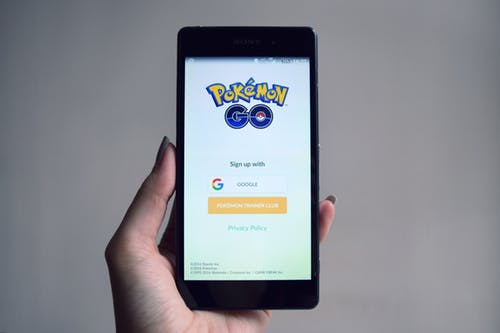
Students are still playing Pokémon GO and are now more connected online.
Isaac Sorell, acting junior, said he created a Pokémon GO GroupMe after the game implemented features conducive to a collaborative experience, with the hope of introducing new players to the world of Pokémon GO.
Sorell said Pokémon was an important element of his childhood. He said he and his brother fully embraced the brand through playing the video games, collecting the trading cards and watching the anime.
“I think there’s something for everyone in Pokémon. If you like to collect things, there’s over 900 Pokémon to catch, if you like story, the anime is great, and if you like competition, there are really great battles,” Sorell said.
Sorell said Pokémon GO recreates the feeling of joy players felt with the property as children with a different set of features.
“Pokémon Go is a world phenomenon that came out in 2016. It is basically a VR way to play Pokémon, so it’s an app on your phone that lets you catch Pokémon in real time. It gives you a map of your real-life location, and Pokémon spawn around you,” Sorell said.
These pokémon are then logged in the Pokédex, a fictional device that tracks which pokémon players have caught.
Penina Eisenberg, music theater/vocal performance freshman, said even though the game is inherently different from the title it’s based on, it still manages to recreate the magic of playing the original Pokémon titles.
“Pokémon GO feeds the nostalgia of playing Pokémon for the first time, especially since you have to be actively engaged when you play,” Eisenberg said.
Eisenberg said she started with Pokémon GO in its inaugural year, but soon took a break until the game found new life years later.
“I was one of the kids who played Pokémon GO all of summer 2016, stopped for a while and then picked it back up when I got to college. Since then, it has changed a lot,” Eisenberg said. “There are more activities now, in general. There are more things to do with your teams, and with the raids you can now go in the GroupMe and say, ‘hey, you want to go do this raid at so and so time?’”
Raids are events where groups of players can meet in locations and work together to capture high-level, rare or legendary pokémon.
Sorell said many of the changes since release have intentionally made excelling through the game significantly easier, and therefore better for new players.
“The game has evolved a lot from 2016 when it came out. They introduced 400 new Pokémon,” Sorell said. “They’ve done a lot to keep the game fun and expand to build community.”
Sorell said in addition to accessibility, many of the improvements to the game have just happened to make playing on college campuses extremely efficient and rewarding.
“The company behind the game, Niantic, uses an algorithm to create Pokéstops, where you can refuel, get poké balls for catching Pokémon, as well as other items. Pokémon will then spawn around these Pokéstops, so usually Pokéstops are any place that stand out in a community. On campus, many of the buildings are Pokéstops, as well as many of the statues,” Sorell said.
Pokéstops on campus include The Eternal Challenge statue, the Goldstar building, the Dulaney-Browne library, and the Naifeh Garden.
Sorell said the improvement to the game that convinced him to open a GroupMe were the updates that increased the sense of community between players, which includes features such as a “community day” where the team introduces new Pokémon that can only be caught on that day. Sorell said the feature is designed to encourage players to cooperate in catching rarer Pokémon.
Eisenberg said cooperation between players has become vital to progress in the game.
“A lot of the community building is based upon exchanging gifts and trading. Someone will ask ‘hey does anyone have this Pokémon? I need to fill the ’dex for this,’ or ‘does anyone want to battle? I need to fulfill the requirements for this,’ so that’s how the community is built so we can help each other out,” Eisenberg said.
Sorell said he created the GroupMe because he knew there were other people playing on campus, and he wanted a space to exist where players could help each other and bond over their shared interest.
“There’s probably about 35 of us now, and I’m sure there’s a lot more players on campus I don’t even know about,” Sorell said.
Any students interested in joining the OCU Pokémon GO GroupMe can contact Isaac Sorell by campus email at iasorell@my.okcu.edu.


Leave a Reply